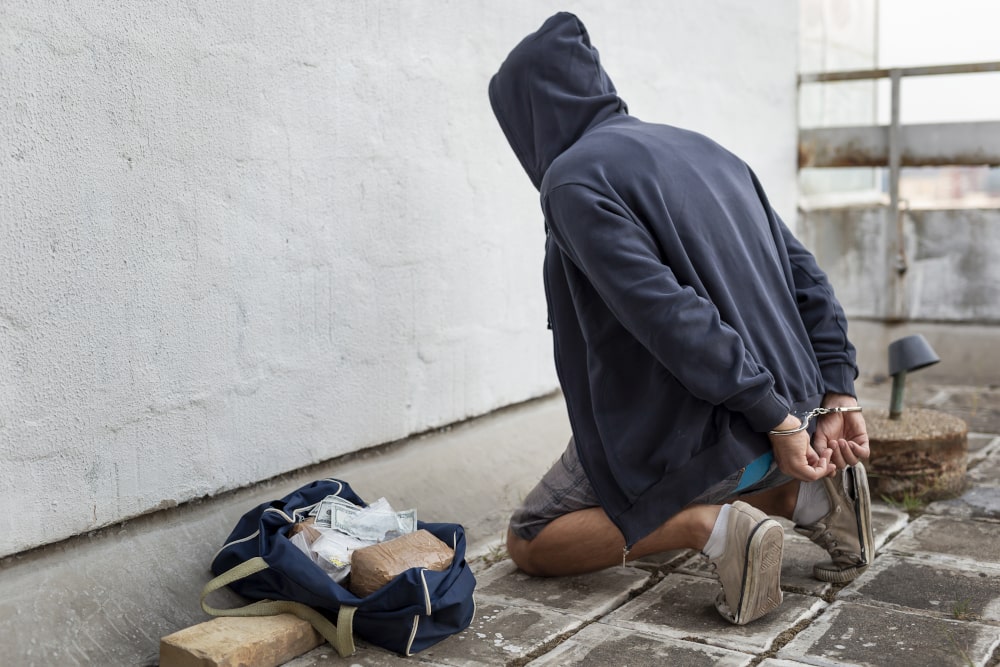
If you’ve been accused of trafficking, you need to seek legal advice at the earliest opportunity. Penalties vary depending on the type and quantity of the drug involved as well as the accused person’s role in the matter and their criminal history. However, you should never expect a slap on the wrist if you get convicted.
Consequences of Drug Convictions
Typically, heroin, fentanyl, cocaine, and methamphetamines attract the harshest penalties. The maximum sentence is life imprisonment, but this punishment is usually reserved for the worst offenders.
If you are found guilty of an offence under the Controlled Drugs and Substances Act (CDSA), your life can change drastically. In addition to the jail time and/or possible fines, a criminal conviction comes with social stigma and possible restrictions on employment and overseas travel.
Most employers carry out background checks before they hire individuals, and when they bring those workers onboard, they expect them to maintain a clean record. Furthermore, some countries bar individuals with certain criminal convictions from entering their shores. This has implications for both leisure travel and educational opportunities.
If you’re facing drug trafficking charges in Canada, you need to do everything you can to beat them. This starts with contacting a drug case lawyer. If you want to learn more about how to beat drug trafficking charges in Canada, you need to keep reading.
What Happens After You Get Charged With Canadian Criminal Code Drug Offenses
After you’ve been arrested and charged with trafficking or possession for trafficking in Canada, the police will either allow you to leave the station or hold you in custody. If you’re allowed to leave, officers will give you a document notifying you of when and where you need to appear in court. The document will also set out any conditions relating to your release. When you appear before a judge, they will set a date for your trial.
If the police keep you in custody, they have 24 hours to present you before a justice of the peace for a bail hearing. The justice of the peace will decide whether you should be held in custody until trial or released on bail. If you are released, the justice of the peace may impose certain conditions on you and require that a surety signs on your behalf. You will also be told when and where you need to appear in court. Given the serious nature of drug trafficking, you will likely be held for bail.
Anyone charged under the Controlled Drugs and Substances Act for drug offences or other crimes is entitled to full disclosure of the Crown’s evidence against them. However, you’ll need to request this. To ensure that you do everything correctly throughout the entire process, you must hire a Canadian drug trafficking lawyer to represent you. A preliminary hearings may occur before your trial, and you should have legal representation for the preliminary hearing as well as the trial.
Defences Your Attorney May Submit on Your Behalf
Experienced defence lawyers know how to beat drug trafficking charges in Canada. They will draw on one or more defences based on the circumstances surrounding your case in their effort to prevent a conviction. In addition to the trafficking charge, you may also be accused of possession of a controlled substance in Canada and/or possession for trafficking in Canada. Drug cases can be complex, so you need an advocate who will act on your behalf.
The onus is on the prosecution to prove beyond a reasonable doubt that you committed the crime of which you are accused. One of the first things your lawyer may query is whether the Crown is sure that you’re the individual who trafficked the drug and not someone else. If there is an element of doubt about who was selling, transporting, or otherwise trafficking the controlled substance, you should be found not guilty.
Another way to fight a conviction under drug trafficking laws in Canada is to prove that you were unaware of what you were doing. Maybe you believed you were selling or transporting a legal substance, or you had no idea the drug was in your possession. The use of this defence will depend on precisely what happened and the type of evidence the prosecution has against you.
There are also defences relating to the way the search and seizure were carried out. Section 8 of the Canadian Charter of Rights and Freedoms protects individuals against searches and seizures carried out without consent or a proper search warrant. Tell your lawyer everything that happened during your arrest so they can determine if your rights were violated. If you can prove that the police acted inappropriately, the case against you should be dropped.
Other defences relate to whether the prosecution can prove the nature of the drug and whether you intended to traffic the substance. Be sure to provide your lawyer with all the information surrounding the case so they can craft the best possible defence.
Seek immediate legal advice if you’ve been accused of drug offences such as trafficking, possession of a controlled substance in Canada, or possession for the purpose of trafficking Canada. Regardless of what well-meaning friends or relatives may say, you need a knowledgeable and skilled lawyer to fight on your behalf. Otherwise, your life could be significantly impacted by a conviction.
It is simply never a good idea to go before the law courts without a lawyer by your side. That’s why lawyers and other people with legal training hire someone else to represent them. Given how much is at stake, you should never take chances when facing drug charges. The lawyers at Vilkhov Law will represent you at every stage of the process to ensure the best possible outcome. Contact us today to schedule a free and confidential consultation.






